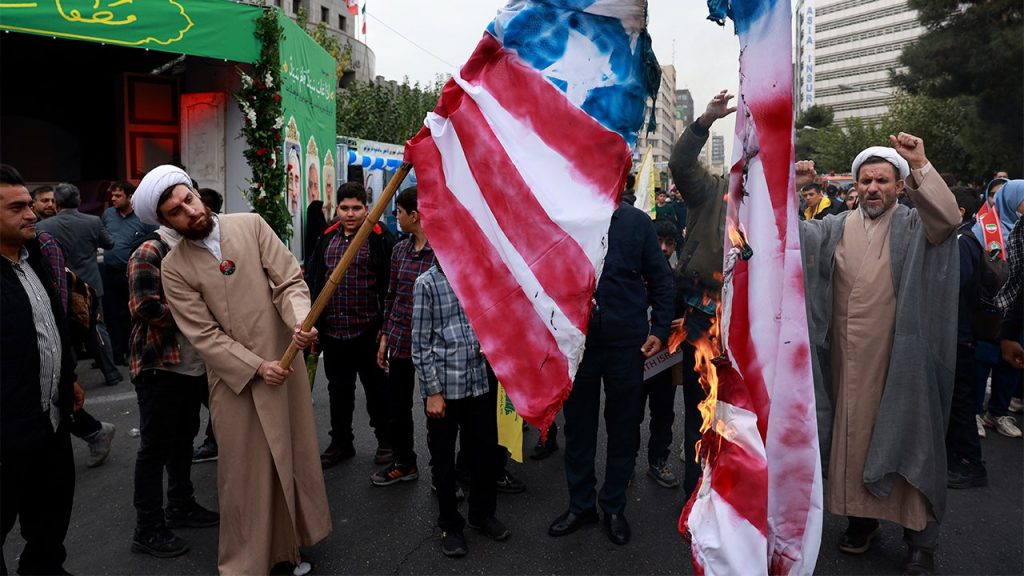Authorities believe that Iranian-American journalist Reza Valizadeh, who worked for the U.S.-funded broadcaster Radio Farda, has been detained by Iran for several months. Valizadeh’s detainment comes as Iran marks the 45th anniversary of the American Embassy takeover and hostage crisis, with Supreme Leader Ayatollah Ali Khamenei threatening a “crushing response” to the U.S. and Israel. In February, Valizadeh had mentioned that his family members were detained in Iran to pressure him to return to the country. In August, he posted messages suggesting he had returned to Iran without any guarantees for his safety, including negotiations with the Revolutionary Guard’s intelligence department.
Reports indicate that Valizadeh has been arrested and transferred to Evin prison, where he has been denied legal representation and the charges against him remain undisclosed. The Human Rights Activists News Agency in Iran stated that Valizadeh had been arrested. The U.S. State Department confirmed that they are aware of reports of Valizadeh’s detention as a dual U.S.-Iranian citizen and are working with Swiss partners, who act as the protecting power for the U.S. in Iran, to gather more information. The State Department condemned Iran’s routine imprisonment of individuals for political purposes, calling it cruel and against international law. Iranian officials have not acknowledged Valizadeh’s detention so far.
Since the 1979 U.S. Embassy crisis, Iran has used individuals with Western ties as bargaining chips in negotiations with the world. In 2023, five Americans detained in Iran were released in exchange for five Iranians held by the U.S. and the release of $6 billion in frozen Iranian assets by South Korea. Valizadeh’s case represents the first known detention of an American by Iran since then. On the anniversary of the embassy takeover, Iran held state-organized rallies with participants chanting “Death to America” and “Death to Israel,” burning U.S. and Israeli flags, and displaying images of slain leaders of Iran-backed groups like Hezbollah and Hamas.
The demonstrations were accompanied by rhetoric from Iranian officials, including Gen. Hossein Salami, head of Iran’s Revolutionary Guard, who emphasized Iran’s readiness to confront perceived enemies in the region in response to the U.S. military’s presence and escalating tensions between Israel and Hezbollah in Lebanon. Valizadeh’s case highlights the ongoing tensions between Iran and the U.S., as well as the broader geopolitical dynamics in the Middle East. The U.S. State Department’s efforts to gather information and condemn Iran’s actions reflect the international implications of Valizadeh’s detention and the impact on diplomatic relations between the two countries.
The situation underscores the risks faced by individuals with dual nationality in countries with strained diplomatic relations, as well as the challenges of navigating political tensions and security concerns in conflict-prone regions like the Middle East. Valizadeh’s case raises questions about the treatment of journalists and individuals targeted for their association with foreign media outlets by authoritarian regimes. The lack of transparency surrounding his arrest and the undisclosed charges reflect broader concerns about due process and human rights violations in Iran. The international community’s response to Valizadeh’s detainment will be crucial in determining the implications for future diplomatic engagements with Iran and efforts to address human rights abuses in the country.
As the situation continues to unfold, the fate of Valizadeh and the response of the Iranian authorities will be closely monitored by human rights organizations and diplomatic channels. The U.S. government’s efforts to secure information and condemn Iran’s actions signal a commitment to accountability and justice for Valizadeh and others facing similar circumstances. The outcome of this case may have far-reaching implications for press freedom, human rights, and international relations in the region, underscoring the importance of upholding fundamental rights and protecting individuals targeted for their associations or expressions of dissent.













